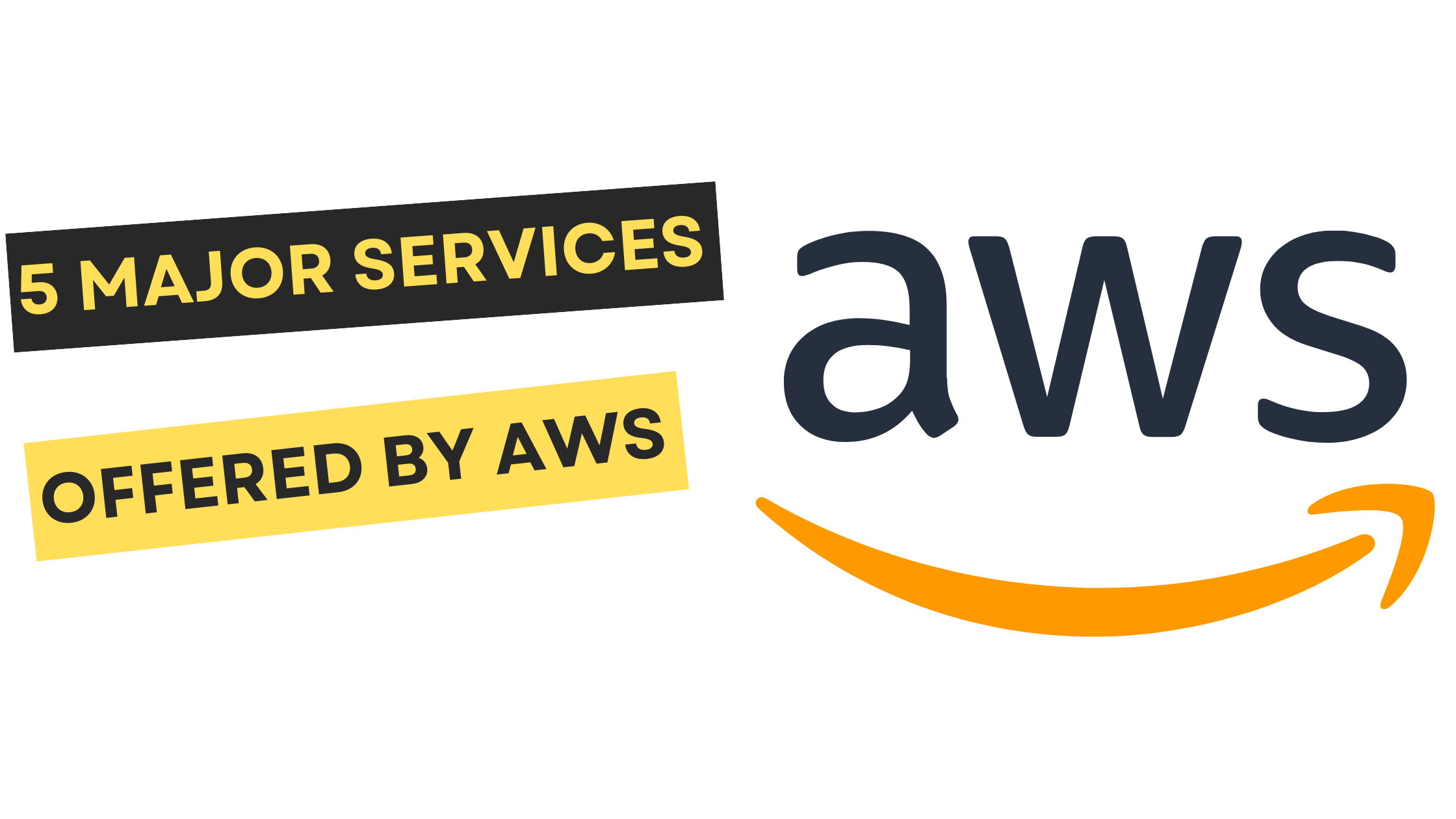
5 Major Services Offered by AWS
Amazon Web Services (or AWS) came into existence around 10 years ago and today, it holds the largest share in the cloud computing industry.
Amazon Web Services (or AWS) came into existence around 10 years ago and today, it holds the largest share in the cloud computing industry. With a market share of 33%, AWS the leading player in the cloud computing domain. AWS is an on-demand cloud computing platform that offers flexible, reliable, scalable, managed, and easy-to-use, cost-effective cloud computing solutions. All these services come with different levels of abstraction like (IaaS) Infrastructure as a Service, (PaaS) Platform as a Service, and (SaaS) packaged software as a service and all the services can be used on a pay-as-you-go. It means you will only be paying for what you are using and while it’s using computing resources. All these services are provided under the Amazon portal as per the subscription of the user. Most of these services are accessed as HTTP calls using the SOAP protocol. Let us have a look at 5 of those major services.
1. Analytics has been a primary source of growth for businesses. Data is always valued as it provides valuable information. A fast and scalable system is required to handle a big amount of data. It offers a variety of applications for this purpose. Amazon EMR provides the Hadoop framework to process big data. Amazon Kinesis helps in analyzing real-time streaming data. AWS Data Pipeline and Glue provide pipeline structures schedule data load and processing.
2. Compute service is required for running any organization. The computer is required for hosting a complete web app to executing a function in a serverless environment. It offers a comprehensive portfolio for computing services like Amazon Elastic Compute Cloud (EC2); provides virtual servers or instances for computing. It is auto-scalable as per the requirement. Amazon Elastic Container Service is a high-performance container service that supports Docker containers. AWS Lambda offers serverless computing to run applications.
3. Blockchain is comparatively newer technology that allows the users work with multiple parties to maintain a verified transaction record. Amazon Managed Blockchain creates and manages a blockchain network. Furthermore, Amazon Quantum Ledger Database (QLDB) offers a fully managed ledger database to maintain transactions.
4. The data is required to be stored somewhere to process it. AWS offers storage in three broad categories: object, block, and file storage. Amazon Simple Storage Service (S3) provides scalable data storage with backup and replication. Amazon Glacier offers storage for archived data and affordable retrieval. AWS backup service manages the backup of data. It automates the backup process. Apart from these applications AWS storage offers other services also.
5. A database can be used to store structured data. AWS provides a wide range of database services to support related and unrelated databases. In addition, it offers a service to handle all application-specific use cases. Amazon Relational Database Service provides a fully managed database service that includes Oracle, SQL, MySQL, etc. Amazon Aurora offers a high-performance, fully managed relational database service. Amazon Timestream provides a fully managed time-series database. Amazon DynamoDB provides database services for the NoSQL database. Along with these databases, AWS offers many other database services to support almost every type of requirement.
Apart from the above-mentioned services, AWS offers
services for Machine learning, Security, identity and compliance and Networking, and content delivery. All such diversified features and services have made AWS
the leading name in the Cloud computing domain.



0 Comments